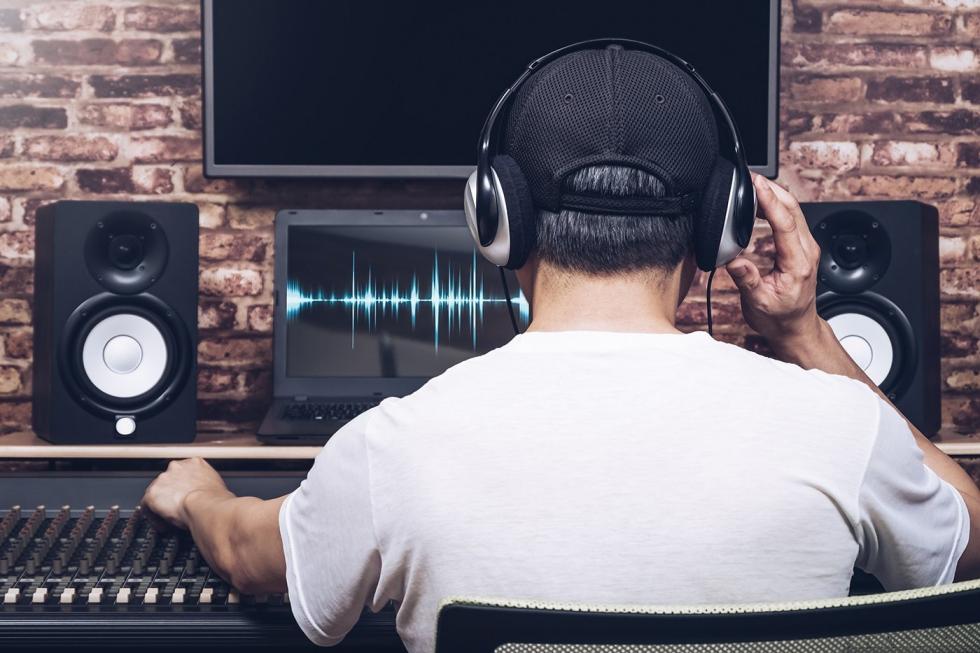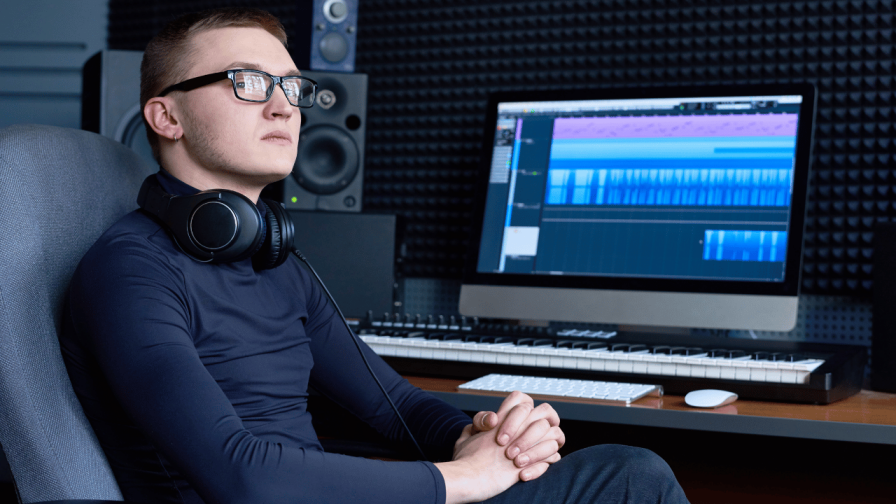Capturing and Editing Record Computer Audio: Audacity vs. SoundLab Audio Editor
/ by hqt
Recording and editing computer audio is essential across various domains, spanning from podcast creation and music production to enhancing professional presentations and videos. High-quality audio not only enriches the overall experience but also ensures clear communication. Among the leading software solutions tailored for these tasks are Audacity and SoundLab Audio Editor.

Audacity stands out for its intuitive interface and comprehensive feature set, catering to both newcomers and seasoned professionals in the audio editing field. In contrast, SoundLab Audio Editor offers a sophisticated desktop-grade editing experience, boasting a powerful audio editing engine and a diverse range of tools essential for audio production—all conveniently consolidated into one platform. Whether you’re just starting out or refining your audio editing skills, these tools are equipped to deliver exceptional results in achieving professional-grade audio output.
Audacity: A Comprehensive Overview
Interface and Usability
Audacity is renowned for its user-friendly interface and intuitive navigation. It offers a clean and straightforward layout that allows both beginners and professionals to access and utilize its features seamlessly. This ease of use makes audio recording and editing a straightforward process.
Key Features: Recording, Editing, and Mixing Audio Tracks
Audacity provides a robust feature set for recording, editing, and mixing audio tracks. Users can capture live audio via microphones or mixers, and import recordings from various media sources. Its multi-track editing capabilities enable precise and efficient mixing of multiple audio tracks.
Editing Capabilities
Audacity includes essential editing tools such as cut, copy, and paste, essential for basic audio adjustments. Advanced users benefit from features like noise reduction, a variety of audio effects, and plugin support, facilitating detailed editing and enhancement of audio quality to achieve professional-grade results.
File Export and Compatibility
Supporting a wide range of file formats including WAV, AIFF, MP3, and OGG, Audacity ensures versatility for diverse audio projects. It seamlessly integrates with other software and platforms, facilitating easy export of edited audio files across different systems without compatibility issues.
SoundLab Audio Editor: Exploring Features
User Interface and Design
SoundLab Audio Editor boasts a modern interface design that combines visual appeal with functional efficiency. Extensive customization options allow users to tailor the workspace to their specific preferences, enhancing the overall audio editing experience.
Editing Tools and Effects
SoundLab Audio Editor excels in audio enhancement with unique features tailored for professional use. Supporting up to 16 audio tracks, it offers over 20 specialized audio effects that can be applied selectively, providing precise control over audio modifications. The intuitive waveform display with smooth zoom functionality further streamlines the editing process.
AI Vocal Remover
A standout feature of SoundLab is its AI Vocal Remover, leveraging machine learning to separate vocals from background accompaniment. This tool doubles as an effective noise reducer for voice recordings, making it invaluable for tasks like creating karaoke tracks or isolating vocals for remixing.
Multitracks Editing and Recording on the Go
SoundLab supports versatile multitrack editing capabilities with features like copy, cut, paste, split, trim, replace, and duplicate commands. It facilitates recording with external microphones and boasts low latency in-ear monitoring, ideal for mobile recording setups. Users can record instruments and vocals simultaneously, mixing them in real-time or separately as needed.
Performance and Stability
Designed to operate efficiently on moderate system specifications, SoundLab Audio Editor maintains stability even during intensive audio editing tasks. This reliability ensures a seamless workflow for professionals working on complex audio projects, without encountering performance bottlenecks or crashes.

Comparative Analysis
Functionality
Side-by-Side Comparison of Features
Both Audacity and SoundLab Audio Editor offer robust functionalities, but they cater to slightly different needs. Audacity is well-known for its comprehensive range of basic and advanced editing tools, making it ideal for users who need a versatile and reliable audio editor. SoundLab, on the other hand, excels with its advanced features such as AI Vocal Remover, multitrack editing, and over 20 audio effects.
| Feature | Audacity | SoundLab Audio Editor |
| Interface | User-friendly, straightforward | Modern, customizable |
| Recording | Live audio, digitize from media | Live audio, external mic support |
| Multi-track Editing | Yes | Yes, supports up to 16 tracks |
| Basic Editing Tools | Cut, copy, paste | Cut, copy, paste, split, trim, replace |
| Advanced Features | Noise reduction, plugins | AI Vocal Remover, 20+ audio effects |
| File Export | WAV, AIFF, MP3, OGG | Lossless output format |
| Compatibility | High | High |
Which Tool is Better Suited for Specific Tasks?
- Audacity is better suited for general audio editing and recording tasks, especially for users who need a reliable, straightforward tool.
- SoundLab is ideal for more complex audio production needs, such as multitrack editing and advanced audio effects application.
User Experience
User Feedback and Reviews
Audacity is praised for its ease of use and reliability, making it popular among both beginners and experienced users. SoundLab receives accolades for its modern interface and advanced features, appealing to professionals seeking comprehensive audio editing tools.
Learning Curve and Support Options
- Audacity: Easy to learn with abundant online tutorials and a supportive user community.
- SoundLab: Slightly steeper learning curve due to advanced features but offers extensive customization and support options.
Use Cases and Applications
Podcast Production
Ideal Software for Podcasters
- Audacity: Favored by podcasters for its simplicity and robust recording features.
- SoundLab: Preferred for its advanced editing capabilities and high-quality output.
Workflow Efficiency and Audio Quality
Audacity provides an efficient workflow for recording and basic editing, ensuring clear audio quality. SoundLab enhances this with its multitrack editing and advanced effects, offering a more polished final product.
Music Production
Editing Music Tracks
- Audacity: Suitable for basic music editing and recording.
- SoundLab: Excels in detailed music production with its advanced multitrack capabilities.
Applying Effects and Mastering
- Audacity: Offers a range of plugins and basic effects suitable for standard music production.
- SoundLab: Provides professional-grade audio effects and mastering tools, allowing for intricate sound design and enhancement.
Final Thoughts
Both Audacity and SoundLab Audio Editor are powerful tools for audio editing and production, each with its unique strengths. Audacity’s user-friendly interface and reliable features make it a great choice for general use, especially for beginners and podcasters. SoundLab Audio Editor, with its advanced features and customizable interface, is ideal for professionals seeking comprehensive tools for music production and complex audio editing tasks. The choice between the two ultimately depends on the specific needs and preferences of the user.